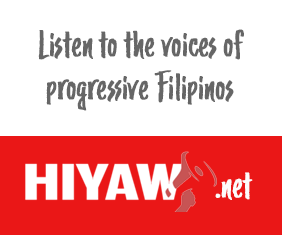El Salvadoran peace activist Marta Benavides likened the killing of Italian priest Fausto Tentorio and the continuing impunity in the Philippines to the 1980 assassination of Archbishop Monsignor Oscar Romero in El Salvador.
“It is the same thing that happened to all the martyrs in Latin America, the same thing that happened in El Salvador with the murder of Monsignor Romero. We call it a ‘loud secret.’ We all know, the whole population knows, what happened, who was behind it … the death squads. (We may not know exactly) who went to kill him, but who was behind it. We think it’s the same thing here,” said Marta Benavides, an El Salvadoran theologist and internationally-acclaimed peace activist, who was a friend of Monsignor Romero. She is one of the few surviving human rights activists that began their work in El Salvador in the 70s.
Benavides is one of the internationalists attending the International Conference on Human Rights and Peace in the Philippines from July 19 to 21 in Quezon City.
Romero was a vocal critic of the US-supported military junta that took power in El Salvador in the late 70s and the human rights violations by right-wing paramilitary; he was shot dead on March 24, 1979 while he was giving mass in his chapel. Tentorio was killed on October 17, 2011, as he was leaving his convent in Arakan, North Cotabato.
Fr. Fausto Tentorio, PIME was a prominent anti-mining advocate and critic of the human rights violations in Mindanao, and had received death threats from suspected military-backed paramilitary before he was killed. He was the first foreign missionary killed under the Aquino regime and since Fr. Tulio Favali, PIME who was killed in the mid-80s under the Marcos Dictatorship. In 2012, a second foreign missionary, Dutch environmentalist Willem Geertman was assassinated in his office in Angeles City, Pampanga. He was the executive director of Alay Bayan Inc., and a staunch critic of development aggression in Aurora province.
Benavides said that political repression will continue because global crises are affecting the poorest nations, and people will always rise up in resistance. “That’s how these governments exist in the world right now. They don’t exist for the people and with the people. They have to maintain the system as it is so they can … maintain themselves in government… and the system finds the needs to repress them, to suppress and repress so that they can continue to oppress.”
Benavides, who was 37 when Romero was killed, recalled the climate of impunity in Latin America : “It was very bad, it was very repressive at that time, and you could feel it in the air. Everybody have to be very careful. Most people that are doing anything that was good for the people, you have to be clandestine, or semi-clandestine. The death squads were after many people. And this was also happening in Guatemala, and also in Honduras. But the thing is at that time, even though it was very dangerous, people were very brave.” [KARAPATAN, 20 June 2013]



